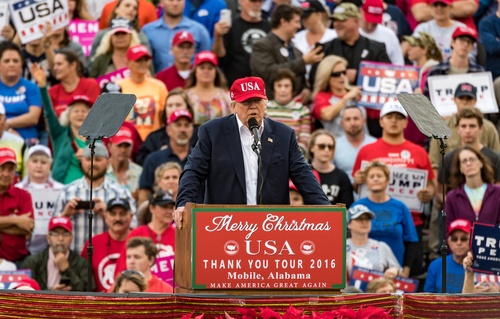Key Takeaways:
- The U.S. economy appears weaker than previously thought under President Donald Trump.
- A major international bank warns Trump’s policies may harm the economy.
- Moody’s downgraded the U.S. credit rating for the first time in history.
- The national debt exceeds $36.8 trillion, raising concerns about long-term stability.
Is the U.S. Economy in Trouble?
Recent warnings from a top banking expert suggest the U.S. economy is heading into choppy waters. Jim Reid, a managing director at Deutsche Bank, says President Donald Trump’s policies are causing growing concerns. Reid, who leads global macro research, fears Trump’s actions could slowly weaken the economy over time.
This warning comes after Moody’s, a major credit rating agency, downgraded the U.S. credit rating from AAA to AA1 for the first time ever. This change signals worries about the country’s ability to manage its growing debt.
What Does the Credit Downgrade Mean?
The U.S. credit rating is like a report card for the nation’s finances. A AAA rating means the country is very reliable at paying its debts. But Moody’s dropped it to AA1, citing the nation’s rising debt and uncertain policies.
The U.S. national debt is now over $36.8 trillion. This huge number has been growing for years, and experts fear it could become unsustainable. Think of it like missing credit card payments—the debt piles up, and eventually, it’s hard to pay off.
Reid compares the situation to “death by a thousand cuts.” This means small, repeated problems are adding up and could eventually cause big trouble.
Trump’s Policies Under Fire
Much of the concern centers around Trump’s policies, especially his 2017 tax cuts. These cuts lowered taxes for many people, but critics argue they mostly benefited the wealthy. Now, Republicans in Congress want to extend these tax cuts for another 10 years.
Extending the tax cuts could cost the U.S. around $4.6 trillion over a decade. This would make it harder to reduce the national debt, according to analysts.
Meanwhile, a new Republican bill aims to extend these tax cuts before Memorial Day. The House Budget Committee is set to vote on it, but some Republicans are hesitant. They worry the bill could make the federal deficit worse.
A Risky Future for the U.S. Economy
The credit downgrade doesn’t immediately change much, but it’s a sign of bigger problems ahead. High debt levels can make it harder for the U.S. to borrow money in the future. It could also increase the cost of paying off debts, leaving less money for important programs like education and healthcare.
Reid says the constant flow of bad fiscal news is like water dripping on a dam. Eventually, the dam could break under the pressure.
The situation is serious, but it’s not all doom and gloom. Experts hope lawmakers will take steps to address the debt and create more balanced policies.
What’s Next?
The bill to extend Trump’s tax cuts is still uncertain. While some Republicans support it, others are hesitant due to concerns about the federal deficit.
If the bill passes, it could lock in policies that make the debt problem worse. But if it fails, lawmakers might have to find other ways to reduce the deficit.
One thing is clear: the U.S. economy faces serious challenges. How lawmakers respond will shape the country’s financial future.
